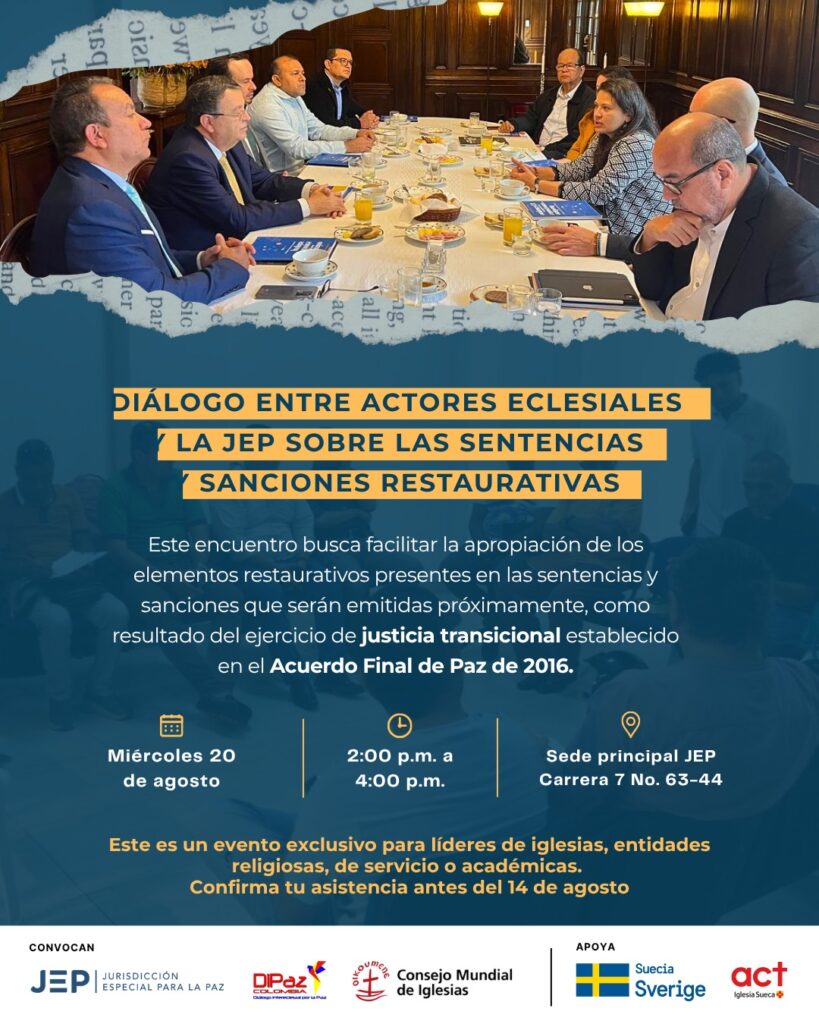On October 2, the Interreligious Initiative for Tropical Forests participated in the “Dialogue between church actors and the Special Jurisdiction for Peace on restorative sentences and sanctions,” convened by the JEP, Interchurch Dialogue for Peace (DiPaz Colombia), and the World Council of Churches.
Through a dialogue between the magistrates of the Special Jurisdiction for Peace and church and religious leaders, this space sought to reflect on the importance of restorative justice in the context of the Colombian armed conflict, its potential to build lasting peace, and its implementation in the sentences and sanctions that this jurisdiction will soon issue as a result of its exercise of transitional justice stipulated in the 2016 Final Peace Agreement, which seeks reconciliation through truth, justice, and reparation.
“Our conviction is that restorative justice cannot be limited to material reparation; it also requires opening paths to spiritual reconciliation, restoration of trust, and regeneration of the territory as a living space. At IRI, we have accompanied communities that see the forest, water, and land not only as natural resources, but also as sacred assets that sustain life and have also been victims of war,” said Blanca Lucía Echeverry.
The director of IRI-Colombia shared with the magistrates and religious leaders the Initiative’s experience in Amazonian territories, where armed conflict, environmental degradation, and the need to heal the social fabric are intertwined. She also drew attention to the urgency of incorporating spiritual, ethical, territorial, environmental, and community dimensions into restorative sanctions. “It is necessary to recognize that healing people also involves healing their bonds with creation, with the community, and with God. Forest restoration, water conservation, and Amazon protection projects could be included as part of the reparations measures, because that is where the common good is realized and new violence is prevented,” emphasized the lawyer, who is an expert in human rights.
The event was attended by JEP magistrates, religious leaders, defendants, and victims of the armed conflict, such as the “Mothers of Soacha,” a group of Colombian women fighting for truth and justice after the murder of their children in extrajudicial killings known as “false positives,” who shared their testimonies.
“I conclude with one conviction: restoring human life and restoring the life of nature are two inseparable sides of the same peace. If we manage to integrate these dimensions, Colombia will have a more solid path toward reconciliation and non-repetition,” Blanca Lucía Echeverry, director of IRI-Colombia.


